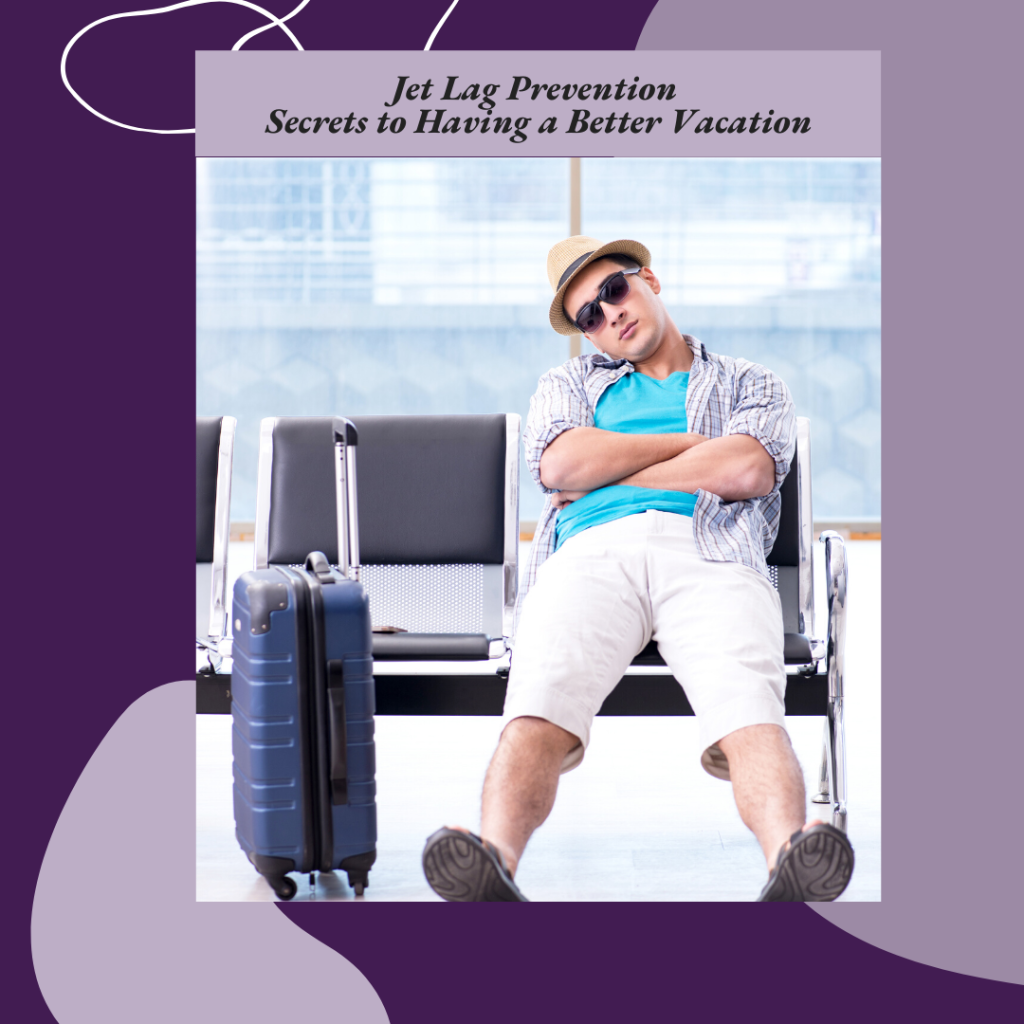

The frustration of jet lag disrupting precious luxury vacation time is a common experience for travelers. This article delves into the complexities of jet lag, exploring its effects on luxury vacations and providing actionable strategies to mitigate this common travel disruption. Understanding the causes, symptoms, and proactive measures to combat jet lag is paramount for maximizing the enjoyment and value of any trip, especially when it comes to lavish vacation experiences. This comprehensive guide will explore the challenges of jet lag, providing actionable strategies to help you enjoy your luxury vacation to the fullest.
Understanding Jet Lag’s Impact on Luxury Vacations
The Disruption to Vacation Bliss
Jet lag is a common affliction affecting travelers, particularly those experiencing significant time zone shifts during luxury vacations. This disruption can significantly impact the enjoyment and overall experience of a meticulously planned trip, turning cherished moments of relaxation and exploration into a frustrating battle against fatigue and disorientation. The allure of picturesque destinations, opulent accommodations, and exquisite dining experiences fades when faced with the persistent symptoms of jet lag. Travelers often find themselves struggling to fully appreciate the splendor of their surroundings, and the overall vacation experience suffers as a result.
The Science Behind Jet Lag Disruption
Circadian Rhythm and Internal Clocks
Jet lag disrupts the body’s natural circadian rhythm, which governs the internal biological clock responsible for regulating sleep-wake cycles, hormone production, and other bodily functions. This internal clock, synchronized to the local time zone, is thrown off kilter by crossing time zones, leading to a mismatch between the body’s internal clock and the external environment. This mismatch can cause a wide range of symptoms that directly impact a luxurious vacation experience, leading to dissatisfaction and decreased enjoyment of the planned trip.
Physiological Reactions to Time Zone Shifts
This time zone shift causes a disruption in the body’s natural sleep-wake cycles, often causing insomnia, fatigue, and difficulty concentrating. Moreover, it can lead to a decreased appetite, digestive issues, and other physical discomforts. Furthermore, the disruption in the circadian rhythm can have negative impacts on mood, energy levels, and overall well-being. This negatively impacts the perception of the luxurious amenities and experiences available during the vacation, making the trip significantly less enjoyable.
Proactive Strategies to Minimize Jet Lag
Pre-Trip Preparation is Key
To prepare for the journey, consider researching the destination’s time zone and start adjusting your sleep schedule a few days before travel. This gradual adjustment allows your body’s internal clock to acclimate more smoothly to the new time zone. Additionally, be sure to maintain a regular sleep-wake schedule, avoiding drastic changes in your sleep patterns before departure. This proactive step can significantly mitigate jet lag symptoms and contribute to a more seamless adjustment upon arrival.
Healthy Habits During Travel
During air travel, prioritize staying hydrated by drinking plenty of water to combat dehydration, and try to get a good night’s rest to maintain energy levels. Additionally, embrace healthy sleeping habits, like using an eye mask or earplugs to block out light and sound on flights, and wearing comfortable, loose-fitting clothing to promote relaxation and reduce discomfort. These practical strategies can provide noticeable relief and contribute to a more enriching travel experience.
Implementing Healthy Sleep Hygiene
Maintaining Consistent Sleep Schedules
Maintaining a consistent sleep schedule both before and after the trip is essential. Avoid sleeping in excessively or staying up too late in the days leading up to the trip to avoid disrupting your circadian rhythm. Try to stick to a regular sleep schedule even when you are not traveling to maintain balance.
Creating a Relaxing Bedtime Routine
Establish a relaxing bedtime routine that signals to your body it’s time to wind down. This routine could involve taking a warm bath, reading a book, listening to calming music, or practicing relaxation techniques like meditation. Incorporating these practices into your daily routine can promote restful sleep and ease the transition into a new time zone.
The Importance of Hydration
Staying Hydrated
Staying adequately hydrated can mitigate the effects of jet lag and other discomforts during travel. The body dehydrates more quickly during air travel, causing a variety of symptoms including headaches, fatigue, and digestive issues. By carrying water with you at all times you can reduce the severity of these issues.
Seeking Professional Advice
Expert Travel Consultations
Consulting with a travel advisor or medical professional about your specific travel needs can provide personalized recommendations for mitigating jet lag based on your trip’s duration, destination, and personal health considerations. A travel advisor can provide valuable insights and strategies to help maximize the luxury and enjoyment of your vacation.
Recovering from the Disruptions of Jet Lag
Post-Trip Strategies
Adjusting to your new time zone after arrival can require several days. It is important to give your body time to adjust to the new surroundings to maximize enjoyment. Try to incorporate healthy habits, such as regular exercise and a balanced diet to support the recovery process.
Advanced Techniques
Utilizing Melatonin Supplements
Utilizing melatonin supplements can aid in adjusting the internal biological clock to the new time zone. Always consult with your doctor before using any new supplements.
Data and Statistics
Supporting Evidence
Studies have shown that pre-trip adjustments to sleep schedules can effectively reduce the severity and duration of jet lag symptoms. According to the National Sleep Foundation, maintaining consistent sleep schedules can significantly improve sleep quality. (Reference needed here.)
FAQ:
How can I minimize the effects of jet lag on my next trip?
Minimizing jet lag involves several key strategies. Firstly, proper planning is vital. Research the time difference between your home and destination, adjust your sleep schedule gradually in the days leading up to your trip, and maintain consistent mealtimes. During travel, stay hydrated by drinking plenty of water. Lastly, try to get rest during the flight and once you arrive. Implement a routine of relaxing activities after you arrive in your destination to help your body adjust faster.
What are the common symptoms of jet lag?
Common jet lag symptoms include fatigue, insomnia, digestive issues, and a general feeling of disorientation. You may experience difficulty concentrating, irritability, and trouble sleeping or staying asleep at your destination. Other common symptoms include headaches, dizziness, and a general sense of malaise. These symptoms usually peak in the first few days after arrival and gradually subside as the body adjusts.
Are there specific foods that can help combat jet lag?
Some foods can aid in combating jet lag. Foods rich in antioxidants and vitamins support the body’s natural healing processes, helping you recover from the effects of the time change. Foods high in magnesium or potassium can help balance your electrolytes and ease general discomfort. Additionally, foods high in protein can help with energy levels and focus, supporting your ability to stay active and engaged during the day. A balanced diet can provide essential nutrients during the challenging days of overcoming jet lag.
In conclusion, jet lag’s disruption of luxury vacation time is a significant issue impacting travelers worldwide. Understanding the causes, symptoms, and proactive strategies to mitigate the negative effects is crucial for maximizing the enjoyment and value of any trip. By planning ahead, staying hydrated, and embracing healthy sleep hygiene, you can minimize the frustrating effects of jet lag and maximize the luxury of your vacation experience. For personalized advice tailored to your specific travel plans, consult a travel advisor for further guidance. Your luxurious vacation awaits!